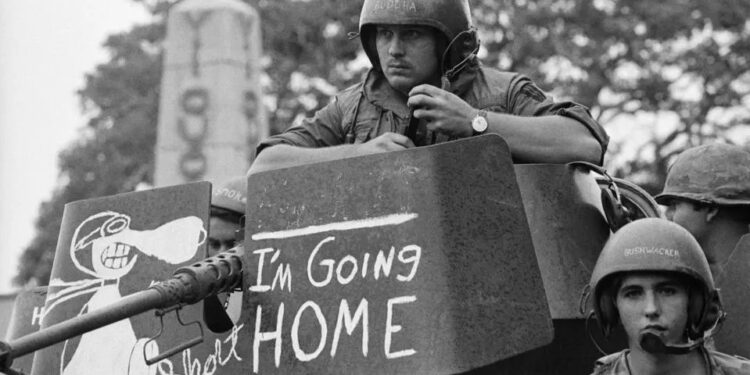The Vietnam War, a protracted and contentious conflict that spanned from 1955 to 1975, marked a critical chapter in the 20th-century history of the United States and Vietnam. The war’s conclusion in 1973 was a significant moment, shaping the geopolitical landscape and leaving lasting impacts on both nations involved.
The roots of the Vietnam War can be traced back to the Cold War era, with the United States supporting South Vietnam against the communist North. The conflict escalated over time, drawing in other nations and becoming a focal point of the global ideological struggle between communism and capitalism. The U.S. commitment deepened as the war intensified, leading to a large-scale military presence and a significant loss of American lives.
By the early 1970s, the war had become increasingly unpopular in the United States. The growing anti-war sentiment, coupled with the economic strain and social unrest at home, put pressure on the U.S. government to seek an end to the conflict. In 1973, the Paris Peace Accords were signed, signaling a cessation of hostilities and the withdrawal of U.S. troops from Vietnam.
The accord aimed at achieving a ceasefire and providing a framework for a political solution. The signing of the agreement represented a compromise between the conflicting parties, with the United States agreeing to withdraw its forces in exchange for the release of American prisoners of war held by North Vietnam. The accords also outlined a process for the reunification of Vietnam through peaceful means and the right of the Vietnamese people to determine their own future.
While the Paris Peace Accords brought a formal end to direct U.S. involvement in the Vietnam War, the conflict continued between North and South Vietnam. The United States had hoped that the agreement would lead to a stable and independent South Vietnam, but the situation remained complex. In 1975, North Vietnamese forces launched a successful offensive, leading to the fall of Saigon and the reunification of Vietnam under communist rule.
The Vietnam War had profound and lasting effects on both the United States and Vietnam. It resulted in a reevaluation of U.S. foreign policy, a deepening of anti-war sentiments, and a recognition of the limits of military intervention. In Vietnam, the war left scars that endure to this day, shaping the nation’s political, social, and economic landscape.
In conclusion, the Vietnam War and its resolution in 1973 marked a pivotal moment in history. The signing of the Paris Peace Accords signaled the end of direct U.S. involvement, but the ultimate resolution of the conflict would unfold in the years that followed, leaving an indelible impact on the nations involved and reshaping global geopolitics.




Recent Comments